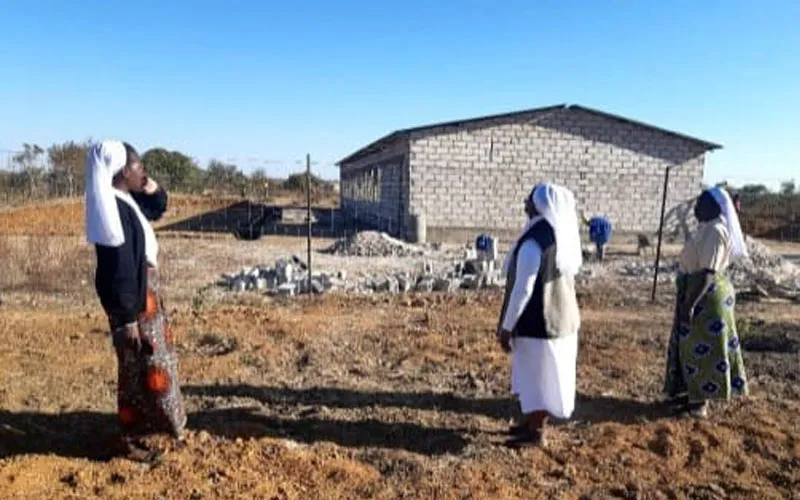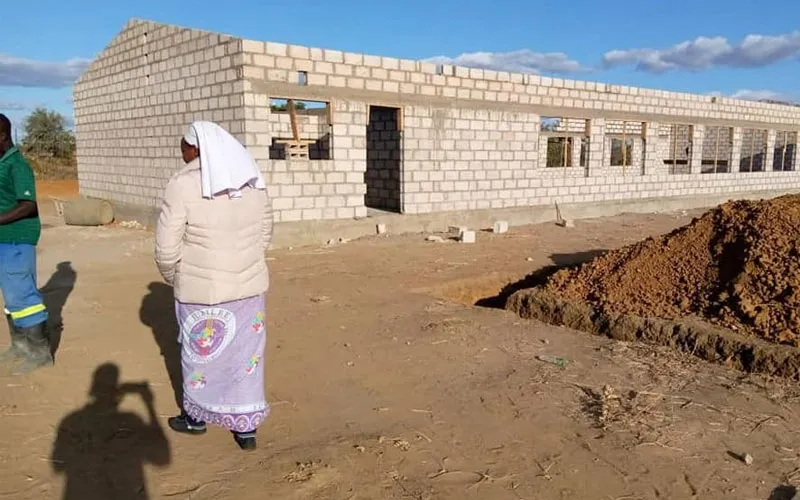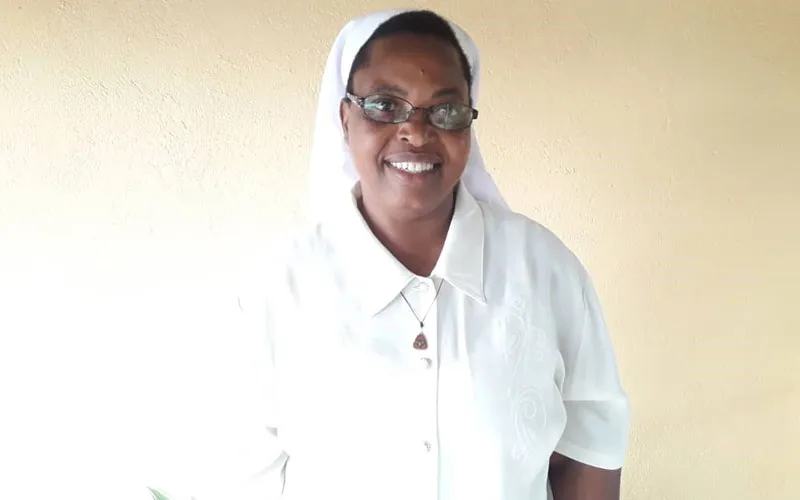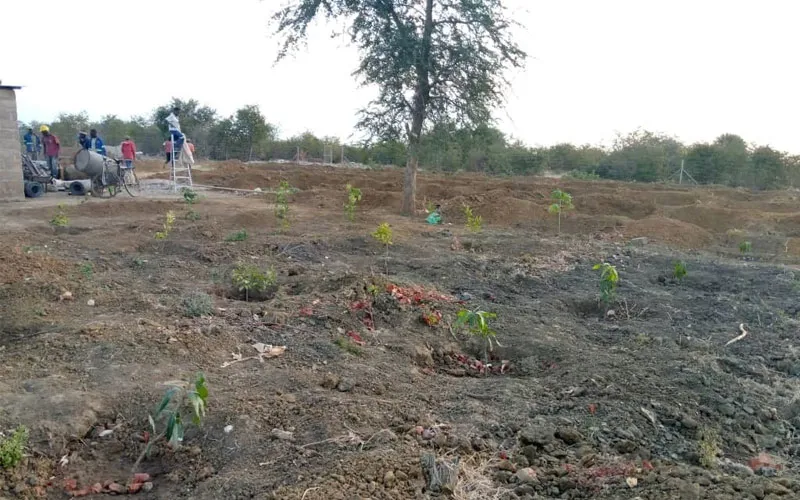While managing the boarding facility, the Sisters who have a background in Business Administration, Finance and Sustainable Development Goals started the EFI project by establishing an orchard on which they planted 200 plants of different fruits. These include mangoes, oranges, tangerines, avocadoes, guavas, bananas, papayas, lemons and lime.

The Sisters also constructed a chicken coop that houses 1,000 birds and have dug foundations for a piggery and three fishponds. A second chicken house is also under construction at the venture, which sits on some 10 acres of land donated by their Congregation.
The three members of RSHS who have attended a training on poultry farming went ahead to propagate the seedlings, which they planted at the farm. They have also facilitated the training of two youth from the community who take care of the farm with the help of extension officers.
The Sisters’ idea was to work towards eradication of poverty through education, hence the pitching of the school project. But without enough resources to start a school, they started with the EFI project, which they aim to incorporate in the school once it’s up and running.
(Story continues below)
“The agriculture project will be a department of the school. In three to four years, the school will be up and running and EFI will be a huge component of our operations,” says Sr. Edna, the project Coordinator.
Before the commencement of the school, the EFI project is targeting local youth and school dropouts who are equipped with modern farming skills to tackle farming challenges that have been brought about by the change in rainfall patterns in Zambia.

The RSHS member says that the shortage of rains has led to reduction in farm yields for the locals who are mainly practice subsistence farming.
“This part of the country used to be known as the greenbelt of Zambia as it produced a lot of food that fed the rest of the country. But things have changed. Rain is scarce and there have been lengthy dry seasons. Production had gone down terribly in the past 10 years,” says Sr. Edna.
According to the Zambian-born Sister, farmers have been unable to adjust to the adverse climate patterns and still rely on the rain to water their crops.
They also keep large herds of cattle mainly for ornamental purposes and are usually unwilling to engage in business.

“People keep a lot of cattle for prestige and to maintain a high status in the community. They find it difficult to sell, say two cows to purchase a farm tool,” she says and adds, “It is this mindset that we are trying to change from as early as possible. The children who go through our school will disseminate the knowledge they gain to the rest of their family members.”
The three sisters have partnered with a popular distributor of agricultural produce in Southern Zambia, which will help in the marketing of their EFI produce. The target market is also local community members who will buy from the farm directly.
Sr. Edna shares the goodwill the project enjoys from the local community saying, “The people around are very happy. They talk about the development that the Sisters project will bring in the community as well as the high moral value that will be inculcated in their young people. I think they trust us that much.”
Equally supportive are RSHS leaders who Sr. Edna says have “immersed” themselves in the project. The leadership of her Congregation, she says, understand the concept and are journeying with the three Sisters in its implementation.
Also working for EFI is the fact that the project’s activities are aligned to the charism of the Congregation including “providing options for the poor,” she says.
However, the three Sisters who have full time apostolates are forced to juggle between their services and the EFI project. The project’s Secretary is a full-time hospital Administrator while the Supervisor is a school Administrator. Sr. Edna, on the other hand, forms Novices of her Congregation.

The three Sisters who stay in separate places, separated by 22 and 160 kilometers, have also to travel long distances to attend meetings in which they plan the running of the project.
“It is not easy,” Sr. Edna says of the highlighted challenges, and adds, “But there is a lot of joy in doing it. The work is very demanding, which requires a lot of sacrifice and commitment.”
In her advice to those looking to venture into the new Sisters’ project, Sr. Edna says, “Settle on something that is aligned to the charisma of your Congregation and something that you all love doing. But above all, be willing to work as a team that understands each other.”
She advises Catholic Sisters to also work with available resources in starting their enterprises and to “avoid unnecessary loans.”
Agnes Aineah is a Kenyan journalist with a background in digital and newspaper reporting. She holds a Master of Arts in Digital Journalism from the Aga Khan University, Graduate School of Media and Communications and a Bachelor's Degree in Linguistics, Media and Communications from Kenya's Moi University. Agnes currently serves as a journalist for ACI Africa.















